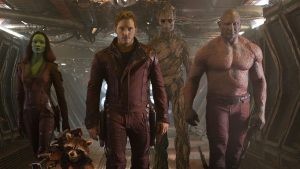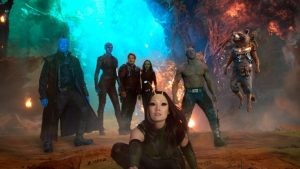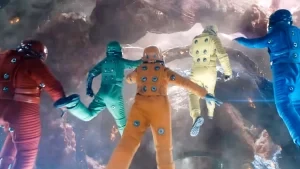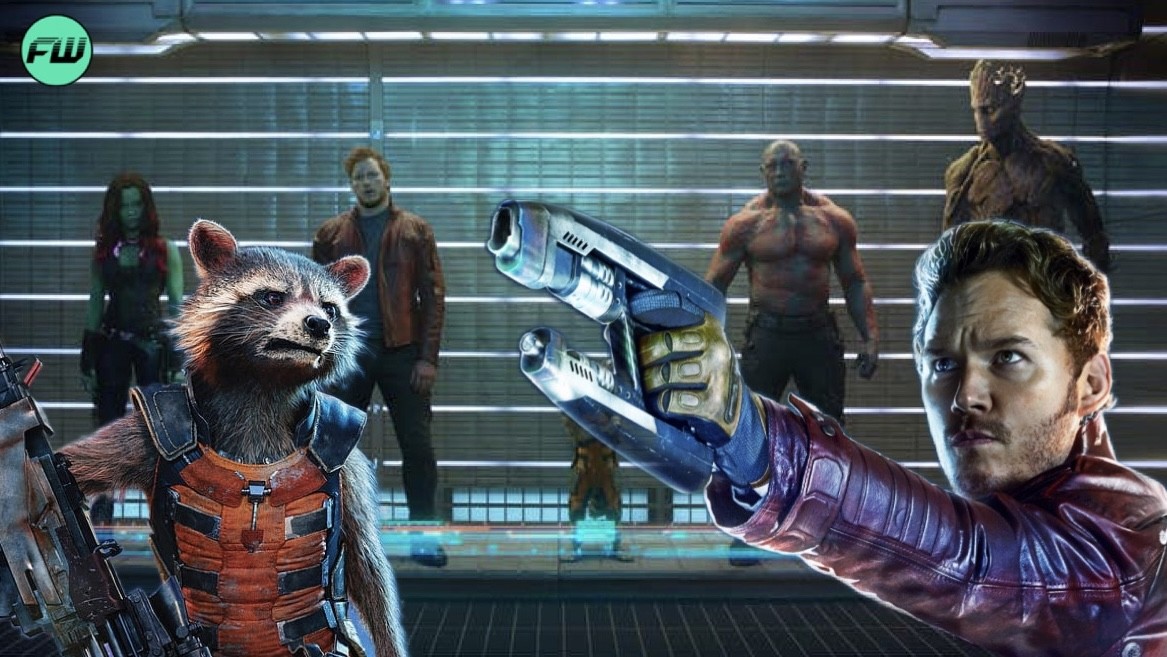It’s hard to remember a time when an MCU project would be thought of as anything other than a surefire success, but that was undoubtedly the film press’ attitude when Marvel announced Guardians of the Galaxy: a science-fiction film starring mostly unknown actors portraying even lesser-known comic book characters written and directed by James Gunn as the first major blockbuster of his career. At the time he was best known for the body horror Slither and the pitch-black superhero satire Super. Many were skeptical about how well Gunn’s prior experience on decidedly adult-oriented films would translate to working under the Marvel/Disney umbrella and speculated that this, combined with the obscurity of the source material, would lead to Guardians being the fledgling Marvel Studios’ first box office bomb. Oh, how wrong they were.
Also Read: Guardians of the Galaxy Vol. 3 Review – A Fun Yet Bumpy Ride
To date, the Guardians of the Galaxy films have collectively grossed over 1.6 billion dollars at the worldwide box office, spawned theme park rides, two Disney+ spin-offs, and a plethora of tie-in merchandise. With the third entry set to be one of the biggest blockbusters of the year, the team has undeniably gone from no-names to household names in less than a decade. So, with so much working against it, how did the first Guardians of the Galaxy become so successful? And how did it manage to spawn an even better sequel? Simply put, they cared about what they were making and did everything in their power to do it right.
Guardians of the Galaxy Vol. 1

Also Read: Guardians of the Galaxy Vol. Post-Credits Scenes Explained
The first Guardians film — a space opera wherein the titular band of misfit scoundrels come together to save the galaxy from a power-hungry Kree warlord — works because it doesn’t view the material as lesser just because of its obscurity. Rather, James Gunn and his team embraced the bizarre nature of the characters and world to create a wholly unique atmosphere and sensibility, both visually and thematically. Moreover, they made the obscurity of the material work in their favor by using it as an excuse to spend as much time as possible fleshing out the personalities and backstories of each individual character. After all, people need to know what these characters are about for the film to work. And this approach worked remarkably well.
Each character not only contributed unique elements to the comedy, but also the emotional core of the story. While Peter Quill is the ostensible lead, every member of the team feels important and no one feels sidelined. And the film’s unique combination of sci-fi absurdity and raw human emotion charmed audiences worldwide. So much so that a sequel was inevitable.
Guardians of the Galaxy Vol. 2

While the first film most likely holds the larger cache of cultural impact, Guardians of the Galaxy Vol. 2 is the superior entry (in my opinion, of course). This time around, the team struggles with maintaining their newfound family as they come to grips with their old ones. It would’ve been easy for Gunn and Marvel to simply play the hits one more time and call it a day; but instead they expanded on what made the original work in order to create something truly special. The genre-driven playfulness is amplified through elaborate space battles, more unique aliens, a literal living planet, a trippy warp jump sequence, and a noticeably more vibrant color palette that makes the visuals pop on screen.
The needle drops — limited to simply a fun gimmick with a clever in-universe justification in the first film — play a much larger role here; with every song choice feeling far more deliberate and impactful to the scene in question. As for the more emotional elements, Gamora and Nebula have a long-overdue heart-to-heart about their Thanos-induced trauma, Rocket confronts his self-sabotage and self-loathing, and Peter Quill’s daddy issues are pushed to the forefront when his biological father turns out to be a genocidal god. This leads to the revelation the man who raised him (Yondu) turns out to have had a good heart despite questionable past actions.
Even Mantis, Drax, and Groot, the ostensible comic relief, have surprisingly emotional arcs. Mantis escapes from an abusive relationship with Ego and finds new family in the Guardians, Drax spends the film still quietly mourning his wife and daughter while outwardly embracing the new status quo, and the naive Baby Groot is forced to confront the dangers of reality head-on. So while Guardians of the Galaxy Vol. 1 is a great film in its own right and laid a solid foundation, Guardians of the Galaxy 2 is where the franchise truly begins living up to its own potential.
GOTG’s Impact

The cultural impact of the Guardians of the Galaxy films cannot be overstated. Their use of music has significantly impacted film soundtracks and film marketing, the success of the first film turned Chris Pratt and Dave Bautista from a sitcom actor and a wrestler into movie stars, and everything from Sonic 2 to the new Dungeons and Dragons has tried to make the Drax literalism lightning strike twice. And yet there’s something about Guardians specifically that still feels special.
Movies featuring space raccoons as central characters shouldn’t be able to regularly reduce me to tears, but these films do exactly that. Yes, the films are raucously funny and action-packed, but I think what keeps audiences invested is the emotional story at the core. People care about these characters and empathize with their struggles because the films embrace and understand the misfit mentality. They never use wackiness as an excuse to talk down to their audience and embrace the unique aspects of the material rather than push them away. What made, and continues to make, this bizarre band of alien misfits so compelling; is how deeply human they feel.
Follow us for more entertainment coverage on Facebook, Twitter, Instagram, and YouTube.

